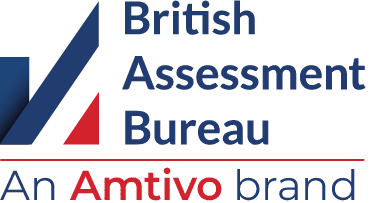An Information Security Management System (ISMS) takes a systematic, risk-based approach to managing and protecting a company’s sensitive data through a structured information security framework.
Information security should be a top priority for any organisation, regardless of the size of its business or the industry in which it operates. From corporate assets to identifiable customer and employee data, neglecting to safeguard data effectively could result in expensive legal and reputational issues.
A robust Information Security Management System (ISMS) is, therefore, essential to protecting valuable, sensitive information and data.
Organisations can quickly prepare for and handle cyber attacks and data breaches, using a risk-based approach to identify potential information security issues and plan accordingly.
An Information Security Management System can provide a framework for this for your business, along with cost savings, improved stakeholder confidence, regulatory compliance and protected business continuity.
What Is an Information Security Management System (ISMS)?
An Information Security Management System (ISMS) is a systematic approach to securing an organisation’s sensitive information.
It covers policies, procedures and controls for identifying potential risks, managing and preventing them. It also protects business continuity and operations by addressing all aspects of information security – people, processes and IT systems.
An ISMS can help tackle every dimension of data security including personnel, processes and IT infrastructures.
What Are the Main Aims of Information Security?
The three main aims of information security, often referred to as the CIA triad, are:
- Confidentiality: Information is prevented from being disclosed without authorisation, ensuring that sensitive internal and customer data remains private.
- Integrity: Ensuring that information and processing methods are accurate, protecting data from any alterations that could negatively impact its reliability or use.
- Availability: Ensuring that information and processing methods are accurate, protecting data from any alterations that could negatively impact its reliability or use.
These factors are key for any organisation. They preserve customer trust and loyalty while helping organisations avoid risks that could result in legal or reputational damage.
What Are the Benefits of an ISMS?
Information security is a critical priority for all organisations, regardless of size and industry.
Your business data, from customer and supplier information to financial records and personnel details, is vulnerable to attack and abuse.
The global average cost of a data breach in 2024 is $4.88m, which is a 10% increase over 2023.
Understanding what an Information Security Management System is and how implementing one gives businesses a structured approach to securing their valuable data is part of a ‘defence by depth’ approach to data security.
Some of the benefits of an ISMS include:
- Preventing financial loss: Avoids costly impacts from data theft or loss, which may harm your business. This includes avoiding financial penalties, data recovery costs and reputational damage.
- Protecting data: Keeps personal and sensitive information from falling into the wrong hands.
- Maintaining trust: Demonstrates to customers and partners that you can handle their data responsibly. This is particularly important given the growing public concern about data privacy.
- Complying with laws: Meets legal and regulatory requirements, helping to avoid penalties, such as supporting compliance with the Data Protection Act 2018 and UK GDPR.
- Supports business continuity: This helps your business continue to operate smoothly in the face of an attempted cyber attack. This can provide a competitive advantage, especially in industries where downtime can lead to significant losses.
- Supporting new business wins: A certified ISMS can signal to potential clients and partner businesses that your organisation responsibly and securely handles data, boosting their confidence in you and helping you win new clients.
- Improved reputation: By implementing a robust ISMS through an ISO 27001 certification, organisations demonstrate their commitment to internationally recognised standards, enhancing their reputation and credibility.
For organisations that are part of a supply chain, data security is often a vital requirement for commercial tenders and contracts.
Demonstrating data protection through a certified ISMS means other suppliers and downstream customers can have confidence in your ability to manage, process and store data as part of an integrated supply chain.
How Are ISO 27001 and ISMS Related?
An organisation does not need an ISO 27001 certification to have a functioning ISMS. However, achieving ISO 27001 certification helps strengthen the framework for managing and improving information security practices.
ISO 27001 is a global standard established by the International Organization for Standardization (ISO). It outlines how an effective ISMS should operate – ISO 27001’s Annex A provides a comprehensive list of controls that should be considered when implementing an ISMS.
The process used is essential for setting up an ISMS under ISO 27001 requirements, with every stage below accounted for:
- Establishing
- Implementing
- Operating
- Monitoring
- Maintaining
- Improving
An ISMS that meets ISO 27001 standards takes a structured approach to protecting sensitive data. The standard provides guidelines for setting up, running and continually improving your ISMS, following a risk management approach to identifying, addressing and reducing information security risks.
Without a robust ISMS, your organisation won’t be able to achieve ISO 27001 certification, and without the guidance of ISO 27001, you may find it difficult to implement an effective ISMS.
Find out more about ISO 27001 certification.
What Are the Key Elements of an ISO 27001-Certified ISMS?
Several core components create an effective ISMS, and each plays an essential role in managing information security risks. The ISO 27001:2022 standard provides a detailed framework for successfully implementing these components.
Leadership
ISO 27001 requires the senior management to be committed to the ISMS and actively involved in information security.
Organisation leaders should guide and support their teams in making the system work well and ensure that all necessary resources are available and properly used to implement it.
Risk assessments
ISO 27001 follows a risk-based approach. Identifying and assessing risks is fundamental to the operation of an effective ISMS. This involves determining real and potential threats to each information asset, and the impact it could have on your organisation’s operations.
This approach is used throughout the entire data process to identify:
- Individual assets that could be at risk, such as data, people, hardware, software and processes
- What the risks are
- The likelihood of them occurring
- The potential impacts and consequences
These insights inform which security procedures and controls are implemented to manage the risks. ISO 27001 provides a detailed risk assessment procedure to help establish a systematic, repeatable process that can be reused for future recertifications.
Documented policies and procedures
An ISMS requires well-defined policies and procedures that are understood by all.
These documents guide the operations related to information security, covering areas like:
- Access control
- Roles and responsibilities
- Protocol in the event of a cyber attack
- How to back up data
It is also essential that these documents should be accessible to relevant employees.
Continual improvement
ISO 27001 certification requires the continual management and improvement of an ISMS so that it remains effective and relevant as the organisation evolves.
Policies, procedures and risk assessments must be reviewed and updated as part of the continual improvement tenet. To drive continual improvements in your ISMS, an organisation must consistently monitor, measure, analyse and evaluate each step and its output.
ISO 27001 recommends a Plan, Do, Check, Act cycle as the foundation for a systematic approach to continual improvement.
Other elements
Other core elements for a successful and effective ISMS include employee awareness training, incident management procedures and business continuity plans. Without these, your organisation may lack comprehensive data protection and may not achieve ISO 27001 certification.
How to Achieve ISO 27001 Certification
Achieving ISO 27001 certification is a beneficial and strategic move that can significantly boost your organisation’s ISMS.
Although the main steps remain the same, the certification process for each organisation can vary depending on several factors, including its size, complexity, industry and the state of the current ISMS.
There are several typical steps to follow to achieve ISO 27001 certification:
- Understand the ISO 27001 standard: Begin by familiarising yourself with the ISO 27001 standard by reading the official standard documentation. It’s important to fully understand its vocabulary, requirements and the commitment needed to meet them.
- Define the scope of your ISMS: Clearly define the scope of your ISMS so that it covers all relevant areas of your organisation’s operations that need protection.
- Prepare the required documentation: ISO 27001 requires a comprehensive set of documents to demonstrate that your ISMS complies with the standard. These documents include the scope of the ISMS, risk assessment procedures, Statement of Applicability, risk treatment plan and policies and procedures for managing information security.
- Implement the ISMS: Once the scope and documentation have been established, you can begin implementing the policies, procedures and controls outlined in your documentation. This step will vary due to your organisation’s unique context, so it could include setting up the necessary IT systems, conducting risk assessments and implementing the identified controls.
- Train your staff: Employees must be aware of all the requirements of ISO 27001 and understand the policies and procedures of your ISMS. They are on the front line when it comes to information security. You may need to provide training sessions or workshops to raise awareness.
- Conduct a pre-audit: Conducting a pre-audit (also known as an internal or Stage 1 audit) before the certification audit can be helpful. This audit helps to identify gaps, weaknesses or areas of ISO non-compliance in your ISMS and correct them before the certification audit.
- Undergo the certification audit: Once you’re confident that your ISMS complies with ISO 27001 requirements, you can apply for the certification audit. This should be conducted by a UKAS-accredited independent certification body, which will assess your ISMS to determine if it meets the standard’s requirements. Successful completion of this audit will result in ISO 27001 certification.
ISO 27001 certification is an ongoing commitment, meaning reviews and improvements are needed for your ISMS to remain effective and compliant.
Get Started With ISO 27001 Certification
British Assessment Bureau is a UKAS-accredited certification body for ISO certifications. We provide an award-winning service built on confidence and trust.
Your certification comes with the coveted Crown & Tick mark, which proves to your clients that it is supported by the authority and credibility of a government-appointed accreditation body.
Find out more about our UKAS accreditation.
Our results speak for themselves – 97% of our customers have given us 4- or 5-star reviews. and we are proud to hold an “Exceptional” Feefo rating.
Find out about the variety of ISO 27001 training courses we offer.
Get started on your journey to ISO 27001 certification – get a quote today or contact our team to discuss your needs.


